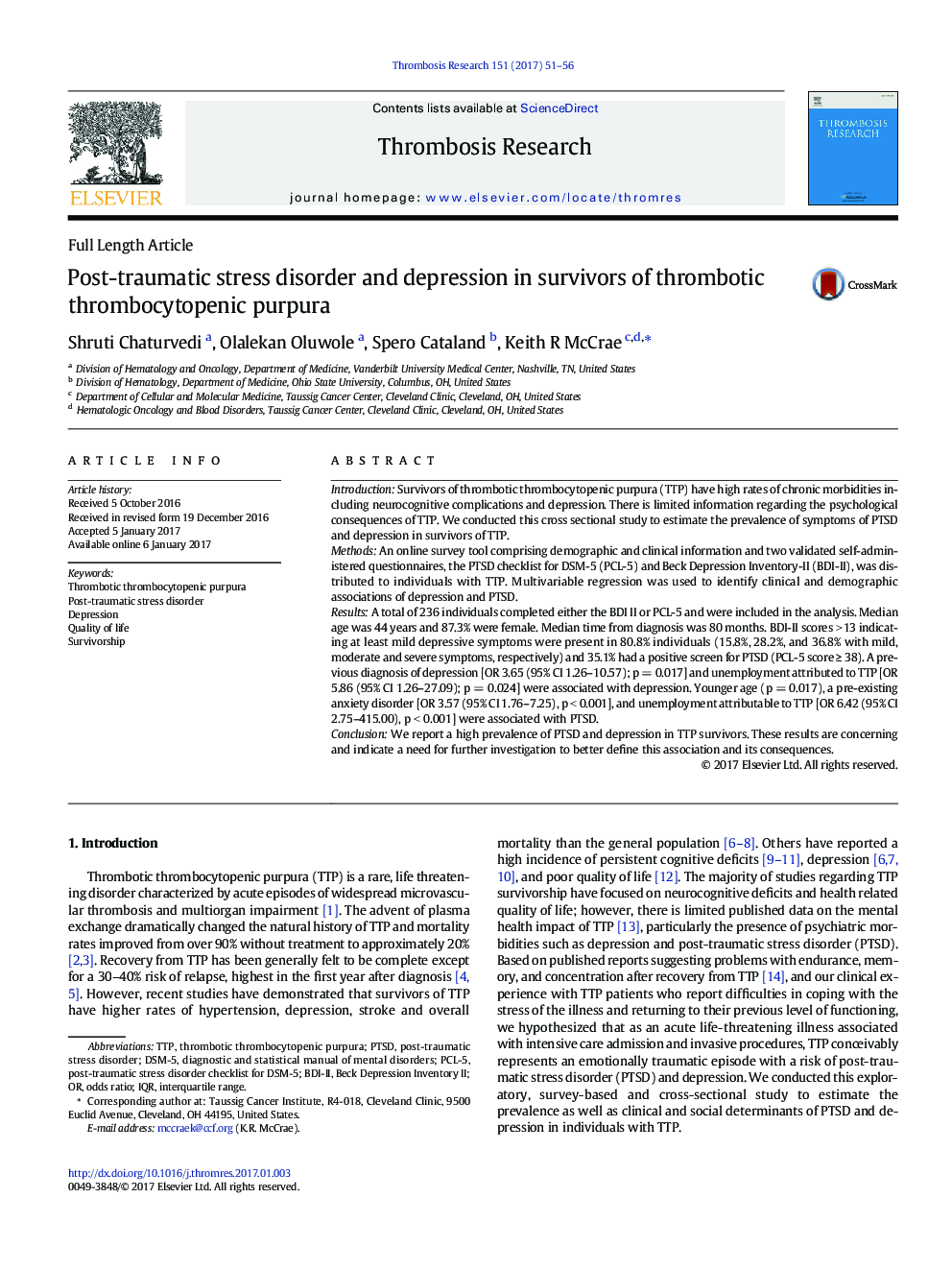| کد مقاله | کد نشریه | سال انتشار | مقاله انگلیسی | نسخه تمام متن |
|---|---|---|---|---|
| 5622046 | 1579192 | 2017 | 6 صفحه PDF | دانلود رایگان |

- Survivors of thrombotic thrombocytopenic purpura (TTP) have high rates of chronic morbidity.
- Neurocognitive problems and depression are prominent in this patient population.
- This study of TTP survivors demonstrates a high incidence of post-traumatic stress disorder.
- The etiology and risk factors for PTSD in survivors of TTP remain uncertain.
IntroductionSurvivors of thrombotic thrombocytopenic purpura (TTP) have high rates of chronic morbidities including neurocognitive complications and depression. There is limited information regarding the psychological consequences of TTP. We conducted this cross sectional study to estimate the prevalence of symptoms of PTSD and depression in survivors of TTP.MethodsAn online survey tool comprising demographic and clinical information and two validated self-administered questionnaires, the PTSD checklist for DSM-5 (PCL-5) and Beck Depression Inventory-II (BDI-II), was distributed to individuals with TTP. Multivariable regression was used to identify clinical and demographic associations of depression and PTSD.ResultsA total of 236 individuals completed either the BDI II or PCL-5 and were included in the analysis. Median age was 44 years and 87.3% were female. Median time from diagnosis was 80 months. BDI-II scores > 13 indicating at least mild depressive symptoms were present in 80.8% individuals (15.8%, 28.2%, and 36.8% with mild, moderate and severe symptoms, respectively) and 35.1% had a positive screen for PTSD (PCL-5 score â¥Â 38). A previous diagnosis of depression [OR 3.65 (95% CI 1.26-10.57); p = 0.017] and unemployment attributed to TTP [OR 5.86 (95% CI 1.26-27.09); p = 0.024] were associated with depression. Younger age (p = 0.017), a pre-existing anxiety disorder [OR 3.57 (95% CI 1.76-7.25), p < 0.001], and unemployment attributable to TTP [OR 6.42 (95% CI 2.75-415.00), p < 0.001] were associated with PTSD.ConclusionWe report a high prevalence of PTSD and depression in TTP survivors. These results are concerning and indicate a need for further investigation to better define this association and its consequences.
Journal: Thrombosis Research - Volume 151, March 2017, Pages 51-56